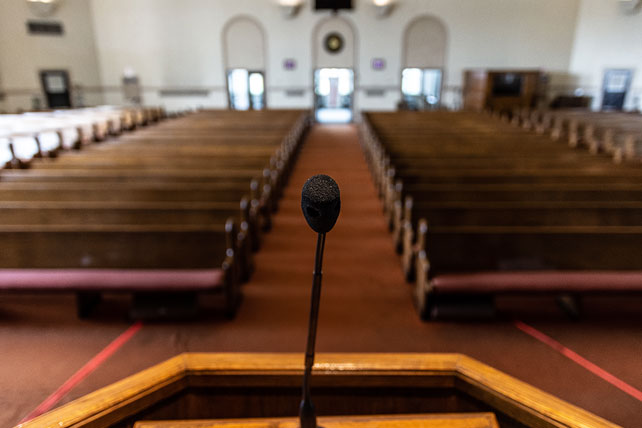Something’s driving your church. There are good ways to run a church and there are bad ways to run a church . . . the challenge for many church leaders is no one is really quite clear on what that is. What drives your church is critical because it impacts everything you do. Ultimately, it directly impacts both your health and your growth as a congregation. As I talk to leaders of churches of all sizes, I find different factors at work. As much as we’d all love to say Jesus runs the church, the reality is that church is a partnership. God seems to delight in human interaction, and while God is in control, we have a role.
How we play that role can can create health or dysfunction.
4 Bad Ways to Run a Church and One Good One
1. A Person
Small churches are almost always run or controlled by a single person. That’s rarely—if ever—healthy and almost always an impediment to growth. The usual candidate for this kind of church is a matriarch, patriarch or the pastor. Matriarchs and patriarchs often emerge in a small church as the one person that effectively keeps the doors open and the lights on.
Interestingly enough, the matriarch or patriarch doesn’t even have to be on the board to exercise their control. It’s just that everyone knows nothing gets done without the approval, blessing or consent of that one person.
The commendable side of a matriarch or patriarch is that the church likely wouldn’t still be in existence without them. They are deeply committed to seeing it exist. The challenges outweigh the benefits, though, for a number of reasons. First, the church is programmed to stay small…one person leadership naturally stunts growth.
Second, churches run by a single person are usually in preservation mode—the goal is to keep it going.
Sometimes the single person who runs a church is the pastor. That’s also one of the bad ways to run a church. It’s the pastor’s responsibility to lead the church, but not to run it. Again, scripture makes it clear the role of a church leader is to equip people to do the work of ministry, each operating in their area of gifting.
Clergy who insist on doing everything deny people their ability, and the church ends up with a much smaller impact than if the pastor truly led. Leaders who insist on running everything end up with relatively little to run.
Churches were never designed to be run by one person.
2. A Personality
Being run by a person and personality are two variations of a similar theme.
Personality driven churches are usually bigger and actually more effective in reaching people than person-run churches.
Usually in a personality-driven church, the personality of the senior leader functions like a magnet, attracting staff, volunteers and new people to the church.
The challenge is that both the growth engine and the loyalty in the church are to the senior leader. And that’s the Achilles heel.
The problem with a personality-driven church is that when you remove the central personality, the church falters.
It can also distract people from following who they should be following—Jesus.
No personality should ever compete with the centrality of Christ in the church.
God can use people to lead people (Moses and Paul were pretty imposing figures), but the goal of a leader should always be to point people to Christ.
Personality-driven churches are only as strong as their leader. And that’s an often fatal flaw.

